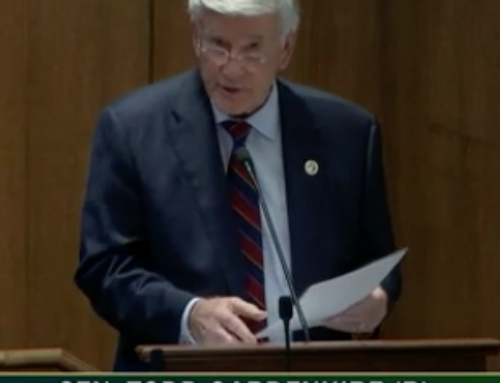The Tennessee Coalition for Open Government, a nonpartisan organization that seeks to preserve and promote government transparency, opposes a legislative proposal that would close indefinitely public access to body camera footage related to questions of excessive use of police force or police misconduct.
A bill that passed out of a House subcommittee this week in its current form would close these two key categories of footage created by body cams, making the video confidential until the conclusion of any investigation and resulting disciplinary, administrative or judicial actions, which could take an undetermined number of months or even years.
We understand that law enforcement agencies as well as some communities have expressed an interest in capturing video and audio recordings of incidents where use of unnecessary force or police misconduct may be alleged.
Some law enforcement agencies in Tennessee, in fact, have already begun to buy and use body cameras. Others have made plans to purchase the cameras.
TCOG supports ensuring citizen access to these two main categories of video footage created by police body cameras, which go to the heart and purpose of body camera programs:
1 – Video relevant to alleged use of unlawful or unnecessary force by a law enforcement officer in violation of state law or the Constitution.
2 – Video relevant to alleged police misconduct in violation of a law enforcement agency’s conduct policies.
TCOG’s position on access to these public records is based on the principle that citizens in Tennessee have a right to know what their government is doing and that the ready citizen access to public records enables accountability. If public records are secret, then a critical tool for accountability vanishes.
Some believe that law enforcement agencies should decide when and what body camera footage is released to the public. We disagree. When police use of force, particularly lethal force, is involved, the very essence of life and liberty is at stake, and the public has a right to know the actions of their own government. If a video recorded by a police officer sheds light on the action of a police officer, that video should not be hidden, but rather be accessible to the citizens. And it should be available to the public at a time when it can be used to empower police accountability to the public they serve.
This is particularly true in today’s environment, when the easy availability of video, often from bystanders using ordinary cellphones, has led to serious questions about the appropriateness of police conduct, police use of force, the credibility of police officers, and the integrity of the judicial system’s handling of allegations of improper police use of force. When policymakers, including police chiefs and other leaders, rely on assertions of “public accountability” to call for the use of body cams, TCOG believes it is imperative that video footage of such incidents be available not only for police disciplinary investigations and legal proceedings, but for the public to reach their own judgments about police conduct.
However, because of issues raised with such a large volume and variety of video potentially recorded by agencies using body cameras, TCOG also has agreed to support a temporary one-year moratorium on unlimited access to all footage, provided that public access is preserved and ensured for video when use of force and violation of departmental rules are in question.
We also support and highly encourage a thorough study of the issues surrounding body cameras by the Advisory Committee on Open Government, a 14-member body made up of representatives from civic groups, journalists and government representatives, including representatives from police and sheriff’s agencies. (Tennessee Coalition for Open Government is represented on the Advisory Committee by its president, attorney Lucian Pera of Memphis.) No other established group in Tennessee includes the broad base of knowledge and expertise that ACOG does.
It is our hope that highly relevant concerns such as citizen privacy, retention, redaction and public interest in body cam footage and body cam programs will receive a deep study by stakeholders, bringing together various viewpoints in a way that could be of assistance to lawmakers and others as they work through any issues.
Tennessee Coalition for Open Government, founded in 2003, is a nonprofit organization that seeks to preserve, protect and improve citizen access to public information and open government in Tennessee. Its Board of Directors includes individual citizens, media organizations, good government groups and others with an interest and commitment to open government. Its mission rests on the belief that access to government information, through public records and public meetings, is crucial in allowing informed citizen participation in a democratic society.


